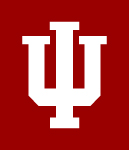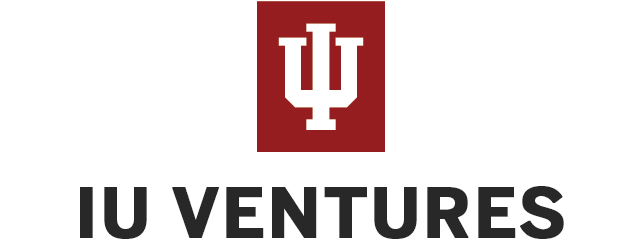
01 May IU Alumni Pete Wilkins and Michelle Rogoff of Hyde Park Angels to Share Thoughts on Investing in AI at IU Ventures Summit
As part of the upcoming IU Founders and Funders Network Venture Summit, Pete Wilkins and Michelle Rogoff, both of Hyde Park Angels (HPA), a leading early-stage investor based in Chicago, will be part of a panel entitled “Investing in AI and Beyond.” The panel will take place on Thursday, May 15th in Henke Hall at the IU Memorial Stadium.
Wilkins is managing partner and leads HPA, one of the most successful early-stage venture investor groups in the country. Rogoff is a senior associate at HPA and is tasked with finding high-growth companies seeking investment and supporting HPA’s investment opportunities throughout their life cycles.

This is the first time that each of you will be attending the IU Ventures Summit. Pete, what are you especially looking forward to?
Coming back to IU feels like a full-circle moment. It’s where I first got exposed to entrepreneurship, so being here now, on the other side of the table, is surreal. I’m excited to meet founders who remind me of where I started.
Michelle, what about you?
I’m really looking forward to being back on campus and speaking at my alma mater. It’s always great to reconnect with the IU community. I’m also excited to learn more about the current venture scene at IU and all the unique opportunities that have developed since I was there. When I was at IU, the Summit didn’t exist, and I really wish it had. It’s great to see how the venture community has grown there.
Pete, you and Michelle are both IU grads with degrees in business. Tell me about your interests while at IU?
Academically, my focus was in business, and I was especially drawn to the intersection of strategy and innovation. I enjoyed diving into case studies, working on group projects that mimicked real-world challenges, and exploring how businesses could grow in smart, sustainable ways. On a personal level, IU gave me the chance to build lifelong friendships and get involved in student organizations that helped shape my leadership style. I loved the energy on campus; whether it was a basketball game at Assembly Hall or a late-night brainstorm session with classmates, something inspiring always happened. Professionally, I was already thinking entrepreneurially. I took every opportunity to connect with mentors, explore internship opportunities, and understand how business theory translated into practice. IU’s ecosystem gave me a solid foundation, and I left feeling grounded and ambitious about what I wanted to build next.
Michelle, tell me about your time at IU?
I was fortunate to be involved in a wide range of activities that helped shape both my personal and professional growth. I ran the Sales Club, was actively involved in the Collegiate Entrepreneurs Organization, and participated in Civic Leadership Development. I also served as a Kelley Mentor and volunteered to teach financial literacy at local elementary schools in Bloomington. Living in the Kelley Living Learning Center during my freshman year was a highlight—there, I formed lifelong friendships with peers who have since become incredibly successful business professionals. I was also part of Hutton Honors, which provided me with additional opportunities to grow. Beyond academics, I continued to volunteer with various charities and was involved in a sorority, which gave me a great balance of social and professional experiences. Academically, I was highly focused and graduated in three years with double majors. A proud moment for me was winning first place in the I-Core competition during my sophomore year.
Pete, how did your time at IU influence who you are today?
At IU, I was constantly encouraged to think beyond the classroom, to look at the why behind business, not just the how. That mindset became the seed for what I now call my Purpose First philosophy. I started asking bigger questions: What drives founders beyond financial success? What kind of impact do I want to make through my work? Being in a diverse, idea-rich environment at IU gave me the chance to test ideas, fail safely, and learn the importance of resilience. It taught me that entrepreneurship isn’t just about building a company—it’s about building with intention. That foundation directly influenced how I approach venture capital today. I’m drawn to founders who are purpose-driven, who lead with clarity and conviction. And when I wrote The Purpose First Entrepreneur, IU’s influence was everywhere in that book, from the leadership lessons I learned to the network that helped me shape the ideas. IU didn’t just prepare me for a career in business—it helped me find my voice, and more importantly, my purpose.
Michelle, did your time at IU also influence who you are today?
My time at IU really set the foundation for my career in business by exposing me to the many different paths within the field. It taught me how to be a strong professional, communicator and leader. The strong alumni network has also opened countless doors for me throughout my career. And, funny enough, I even met my partner, who’s also an IU alum!
Michelle, what do you most miss about IU?
I miss the close-knit community—it’s something you just can’t find anywhere else. From the sense of belonging through sports, activities, and clubs, to living in the Kelley Living Learning Center and making lifelong friends, to the intimate small groups in my Kelley classes. And as a big foodie, I definitely miss all the amazing food in B-town too!
Pete, what about you?
There’s nothing like the buzz in Bloomington when IU basketball and the Little 500 are in full swing. Although this didn’t happen while I was there, I love all the excitement surrounding IU football and new head coach Curt Cignetti, which I want to experience soon!
You are both part of Hyde Park Angels (HPA), an early-stage venture firm in Chicago. Michelle, what is currently holding your attention, when it comes to new early stage startups?
I’m really excited about the innovation happening in AI, especially how it’s being applied to create specialized solutions across different industries while boosting human efficiency. I’m also interested in how AI and data are enabling more personalized experiences and products.
During the Summit, you will both be on a panel entitled “Investing in AI and Beyond.” Pete, can you give us a preview of some of what you might share during the panel?
Everyone’s chasing AI, but not enough people are asking where the moat is. We’re past the hype of just wrapping a UI around ChatGPT. I want to talk about what’s actually investable, AI that’s embedded so deeply into workflows it feels like automated productivity, not marketing. I’ll share why we’re leaning toward founders building in less obvious verticals, leveraging proprietary data, and solving painful, high-friction problems. I’ll push the conversation beyond AI into agents and automation and explain how the real unlock is when AI stops being the product and becomes the operator. We also talk about the valuation discipline of AI. Some rounds are being priced like it’s 2021 again, and that’s dangerous.
Michelle, what advice can you offer to the entrepreneurs in the audience?
Surround yourself with a great team—whether it’s your co-founders, hires, investors, or advisors. Having the right people around the table can make a huge difference and can significantly impact the success of your business.
Pete, what wisdom would you like to share with the entrepreneurs in the audience?
First, talk to 50 customers before you write a line of code. Your unfair advantage is knowing your user better than anyone else. Obsess over their pain, not your solution. Second, start fundraising two to three months before you ‘need’ to. You’ll need time to build relationships, refine your pitch, and create a sense of momentum. Fundraising is a sales process — treat it like one. Third, investor updates are your secret weapon. Even if you haven’t raised yet, start sending monthly updates to potential investors. It shows execution and builds trust over time. Fourth, build a ‘why now’ into your story. VCs fund inevitability — not just great ideas. Tie your product to a macro tailwind, regulatory shift, or emerging behavior. Fifth, run lean, but don’t underspend on speed. Burn should have a purpose: getting to the next inflection point. Know exactly what you’re de-risking in the next 6–12 months.
Registration for the IU Ventures Summit, available on the IU Ventures website, is limited to 300 people and is expected to sell out. Registration is $100 and includes all Summit programming. IU Ventures also offers a limited number of full scholarships (offered first come, first served) for current IU students to attend all Summit activities.



